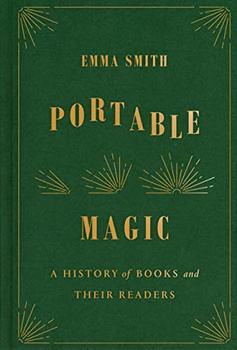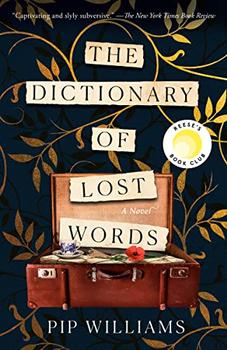Summary | Excerpt | Reviews | Beyond the book | Read-Alikes | Genres & Themes | Author Bio

The Curious, Enthralling and Extraordinary Story of English Spelling
by David CrystalDavid Crystal's rich, useful and fascinating survey of English spelling will change the way you think about language. Crystal shows us that language is not a fixed system created by scholars, but is constantly being shaped and reshaped by individual pens and voices – monks, scribes, speakers of regional dialects, printers, and even Twitter users.
Crystal shows why English spelling can be confusing and how it got that way: "[the] origins of spelling difficulties in English lie in the fact that there are far more sounds in the language than there are letters." After a brief and illuminating section on alphabet origins, Crystal explains how scribes first used the Latin alphabet to record the sounds of Old English, a runic, Germanic, inflected language that had sounds that didn't exist in Latin: the short "a" sound in "man," for which scribes created the "ae" letter, "ash" and the "th" sound, which scribes represented through two letters, "eth" and "thorn." For the "w" sound we hear in "we," for which some scribes used the Latin "v," while others used a double "u"or "uu" or borrowed a letter from the runic alphabet, "wynn," which looks like a lowercase p. Wynn persisted until the 13th century when the double "u" became our single letter, "w."
Despite these innovations, spelling varied from region to region to reflect local pronunciations and the preferences of individual scribes who often spelled the same word different ways in the same document to justify a margin or because they simply liked the way a certain spelling looked. Although today "correct" spelling is expected, these expressive variations in spelling were the norm, Crystal says: "There was no notion of 'correct' or 'standard' spelling at the outset. So if people in the north of England said the word for 'land' with rounded lips, so that it sounded like 'lond,' then it would be spelled that way." Spelling is complicated now because modern English uses silent letters and letters can represent more than one sound.
Unlike contemporary English, Old English words were spelled phonetically and all letters in the alphabet were pronounced. Crystal surveys the forces that created the English we spell and speak today - among these the way silent "e" and doubling consonants answered the need to differentiate between long and short vowels; the increase in suffixes and prefixes during the Middle Ages; new words borrowed from French and Latin and the impulse toward Latinate spelling; the handwriting style of medieval scribes which dotted the "i" and substituted "y" for "i" when it came at the end of a word; and the need to distinguish homophones. Other forces shaping spelling were the process of analogy, the tendency for words which have similar sounds to be spelled in the same way; the development of printing; the dictionaries of Johnson and Webster; the rise of publishers and house styles; the urge to express personal and cultural identity (British vs. American English); and the effect of the Internet and texting.
By showing us that the story of English spelling is the story "behind the words," Crystal demonstrates how etymology illuminates spelling. Each chapter begins with a quotation about spelling and these are often amusing, but I wish Crystal had included more excerpts from literature and medieval manuscripts. I also wish he'd followed the evolution of the word, "spelling" from its root meaning as a group of words with magical powers to its current, more practical meaning.
Crystal also presents effective and rational ways to teach spelling and gives the lay reader a lucid introduction to the history and linguistic features of English. For teachers of spelling, he provides two appendices and a useful index of words covered in the text.
Crystal gave me a new understanding of each writer's, speaker's and speller's power to shape our changeable language.
![]() This review was originally published in The BookBrowse Review in July 2013, and has been updated for the
November 2014 edition.
Click here to go to this issue.
This review was originally published in The BookBrowse Review in July 2013, and has been updated for the
November 2014 edition.
Click here to go to this issue.

If you liked Spell It Out, try these:

by Emma Smith
Published 2022
A history of one of humankind's most resilient and influential technologies over the past millennium—the book.

by Pip Williams
Published 2022
In this remarkable debut based on actual events, as a team of male scholars compiles the first Oxford English Dictionary, the daughter of one of them decides to collect the "objectionable" words they omit.
Your guide toexceptional books
BookBrowse seeks out and recommends the best in contemporary fiction and nonfiction—books that not only engage and entertain but also deepen our understanding of ourselves and the world around us.